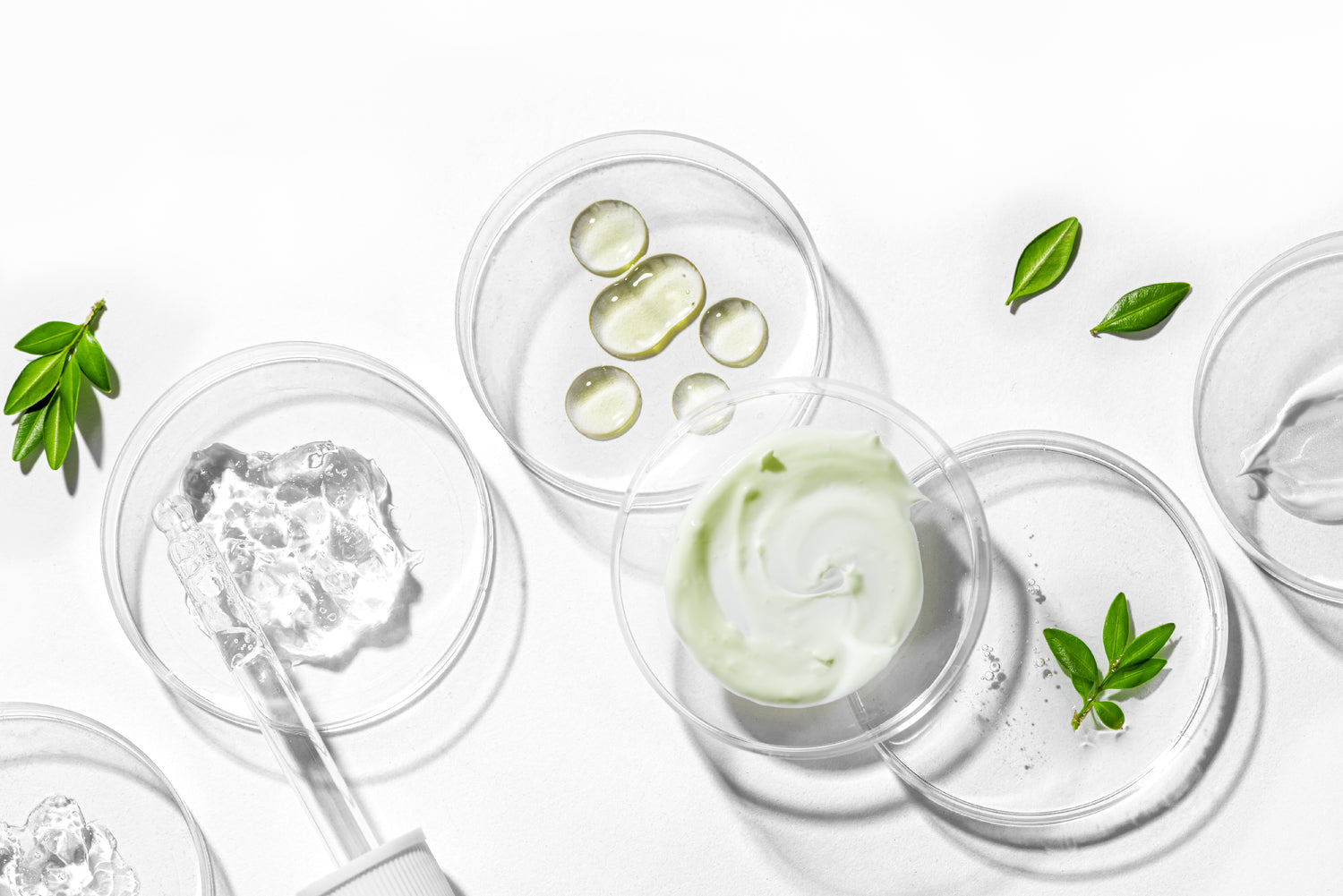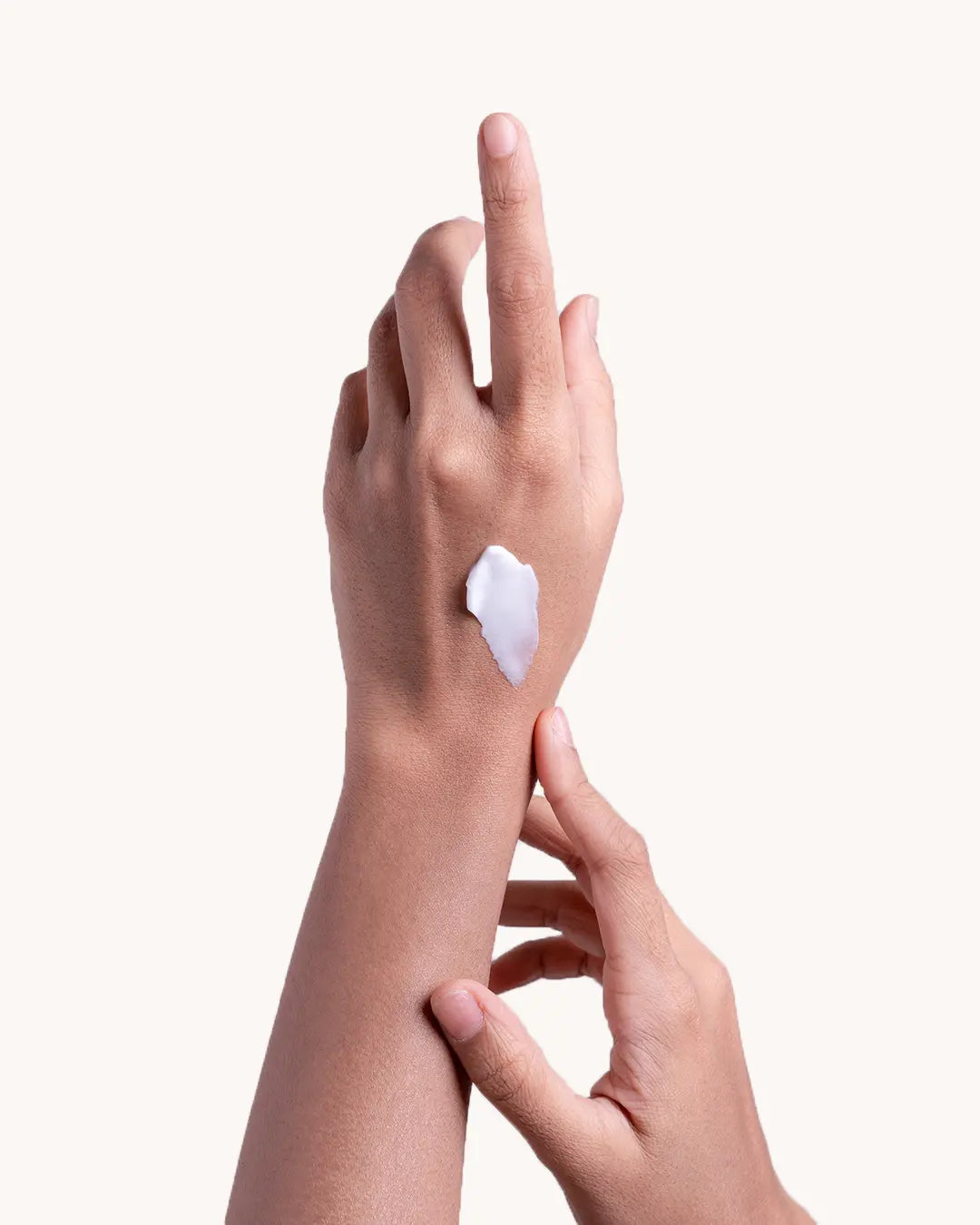
No false claims,
no greenwashing
You’ve probably seen claims like clean, natural and Ayurvedic — but did you know these terms aren’t actually regulated? That means brands can use parabens, sulphates, synthetic fragrance, or petrochemicals, and still call it “clean” or "natural". I couldn't find brands I could trust.
At Mettā, we’re very mindful and selective about what goes into our products. We follow the highest clean beauty standards — leaving out over 2700 harmful or irritating ingredients. We believe in full transparency, so we publish every ingredient and our entire policy.

Clean & plant-based goodness
We favour naturally-derived ingredients, with 82% to 98% of our formulations being plant-based. For efficacy, we use safe actives where needed — creating a synergistic blend of nature, Ayurveda and modern science.
Every product is formulated, tested, reformulated, and retested until it meets our high standards. Always vegan, cruelty-free and good for you. Skincare you can trust.
Ingredients we do NOT use
Parabens (methyl-, isobutyl-, propyl- and others)
Health
Endocrine disrupters that can alter hormone systems in the body and negatively impact female reproductive health
Sulfates (SLS, SLES and others)
Skin irritation & Allergies
Known irritants, may cause skin and eye irritation, and can strip natural oils from the skin
Phthalates (DBP, DEHP, DEP and others)
Health
Accumulates in the skin and can cause hormonal imbalances that negatively impact reproductive health
Polyethylene glycol (PEGs)
Health, Skin irritation & Allergies
May cause skin irritation and concerns of contamination with ethylene oxide and 1,4-dioxane - both carcinogens
Microplastics (Polyethylene, Polypropylene, Polymethyl Methacrylate)
Health, Planet
Tiny plastic particles that can enter the body and an environmental hazard; accumulates in ecosystems and marine life, posing a threat to the environment
Silicones (Cyclic silicones, Dimethicone)
Health, Planet
Non-biodegradable, accumulates in the environment and potential skin irritant
Bisphenol A (BPA)
Health, Planet
Potential endocrine disruptor, associated with health risks including hormonal imbalance
Petrochemicals (Mineral oil, Paraffin Wax, Petrolatum, Petroleum Jelly, Propylene Glycol, Butylene Glycol, Isopropyl Alcohol)
Skin irritation & Allergies, Planet
Can clog pores, potential skin sensitivity, and harmful to the environment
Polymers (Acrylates Copolymer, Carbomer, VP/VA Copolymer)
Skin Irritation, Planet
Derived from petrochemicals, can clog pores, non-biodegradable, environmental damage
Synthetic fragrances (Fragrance, Parfum)
Skin irritation & Allergies
Major cause of allergic reactions, skin sensitivity and might contain undisclosed harmful chemicals
Synthetic colours & dyes
Skin irritation & Allergies
May cause skin irritation and are associated with potential allergic reactions
Formaldehydes (& releasing agents)
Health
A known carcinogen that is also linked to asthma, neurotoxicity, and developmental toxicity
Talc
Health
Contamination concerns with asbestos - linked to respiratory issues and potential cancer risk
Coal Tar
Health
Contains carcinogens; potential risks include skin irritation and cancer risk
Triclosan and Triclocarban
Health, Planet
Endocrine (hormone system) disruptors and toxic to the environment
Butylated Hydroxyanisole (BHA) / Butylated Hydroxytoluene (BHT)
Health, Skin irritation & Allergies
Potential carcinogens, endocrine disruptors, and environmental persistence
Ethylenediaminetetraacetic acid (EDTA) and derivatives
Skin irritation & Allergies, Planet
Classified as an irritant to skin, eyes and lungs and persists in the environment
Methylisothiazolinone (MI / MIT) / Methylchlorisothiazolinone (MCI / MCIT)
Skin irritation & Allergies, Planet
Cause allergies and skin sensitivity, toxic to aquatic life
Ethanolamines (MEA/DEA/TEA)
Health, Skin irritation & Allergies
May form harmful, carcinogenic nitrosamines; potential skin and eye irritants
Chemical Sunscreens (Benzophenone, Oxybenzone, Avobenzone and Octinoxate)
Skin irritation & Allergies, Planet
May cause skin sensitivity and hormone disruption, linked to coral reef harm
Hydroquinone
Skin irritation & Allergies
Skin irritant, linked to cancer, neurotoxicity, hormone disruption and concerns of skin discoloration
Retinoic Acid and Retinyl Palmitate
Skin irritation & Allergies
May cause skin irritation, linked to cancer
PFAs
Health, Planet
Non-biodegradable, accumulates in the environment, potential skin irritant and linked to cancer and other health concerns
Resorcinol
Health, Skin irritation & Allergies
Skin irritant, allergen and linked to hormone disruption
Toluene
Health, Skin irritation & Allergies
Skin irritant, allergen and linked to hormone disruption
Animal derived ingredients
Animal musks, Animal fats, Beeswax (wax produced by honeybees), Honey (produced by honeybees), Lanolin (derived from sheep's wool), Collagen (derived from animal connective tissues), Keratin (obtained from animal hair, hooves, and feathers), Carmine (red pigment derived from crushed female cochineal insects), Squalene (sourced from shark liver), Glycerin (can be sourced from animal fats - we use vegetable glycerin)
Other ingredients we will never use
Ethoxylated ingredients (Emulsifying Wax, Polysorbate-20, Ceteareth-20 etc), Acrylates (Ethyl Acrylate, Ethyl Methacrylate, Methyl Methacrylate, Butyl Methacrylate, Hydroxypropyl Methacrylate, Tetrahydrofurfuryl Methacrylate, Trimethylolpropane Trimethacrylate), Aluminium Powder, Aluminium Salts, Styrenes (Bromostyrene, Styrene Oxide) Benzene, Benzophenone Related Compounds, Butoxyethanol, Carbon Black, Lead, Lead Acetate, Methyl Cellosolve, Methoxyethanol, Acrylamides (Polyacrylamide, Acrylamide), Mercury and Mercury compounds, Polymers (Acrylates Copolymer, Carbomer, Ammonium Acryloyldimethyltaurate/VP Copolymer)


